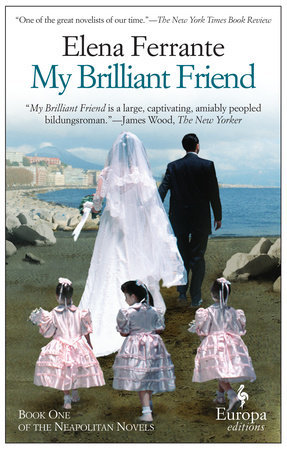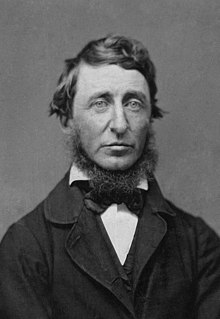A modern masterpiece from one of Italy's most acclaimed authors, My Brilliant Friend is a rich, intense and generous hearted story about two friends, Elena and Lila. Ferrante's inimitable style lends itself perfectly to a meticulous portrait of these two women that is also the story of a nation and a touching meditation on the nature of friendship. Through the lives of these two women, Ferrante tells the story of a neighbourhood, a city and a country as it is transformed in ways that, in turn, also transform the relationship between her two protagonists.
MY THOUGHTS:
All reports that this is a fascinating book are quite true. I'd call it a psychological suburban novel. The prologue introduces us to the narrator Elena, a senior lady who's just found out her lifelong friend Lila has disappeared. But rather than being concerned, Elena suspects it's just something Lila imagined doing for a long time and finally pulled off.
So she gets out her pen to write about the history of their friendship, which comprises the rest of the book. It describes how Lila helped Elena through all sorts of challenges, including school assignments, which she never got the chance to study herself. And it draws in a whole lot of their friends and family, since everyone's story crosses those of others.
My first impression of Lila had a negative tinge, because I thought, 'Who does that?' Who's mean enough to pull a deliberate disappearing act, putting those close to them through hell? As the story heats up though, it's easier to absolve her, when we see how people have thwarted this girl's ambition and creativity for years. It begins when she's the smartest kid in her class, yet her controlling father decides she's had enough formal education. Whenever Lila tries to re-direct her flair and intellect into the narrow channels left, some other bozo pops up, with the power to stuff her up. She tries to design her own line of shoes in her father's shoemakers' shop, and you have to read it to see what happens. Whenever Lila's stifled, it's as if her brilliance tries to leak out of any crack it can find. But one by one, they're all patched up by clueless people.
So it's easy to understand why removing herself entirely might appeal to her. But is her best friend Elena's reaction passive-aggressive, rather than the loving act it may appear on the surface? Perhaps writing her memories of their past down in a book becomes the latest way of foiling Lila's intentions. Basically, she's saying, 'If she thinks she can erase herself, I'll leave a trace of her that she can't touch.'
The main story starts when they're small girls living in a poor, struggling suburb in 1950's Naples. Her relationship with Lila means the world to Elena, although it causes pain as much as happiness. Lila's life shows that being feisty can't get you everything, but she still has something Elena can't stop envying - the knack of making everything she touches seem more desirable than anything else.
Elena has everything Lila ever seemed to want, but finds it hard to enjoy. 'What I did by myself couldn't excite me. Only what Lila touched became important.' Even though Elena is living what appears to be the life of both their dreams, she can't stop feeling second rate and hackneyed. And to add yet another layer, we wonder whether this inferiority is even based in reality, or just in Elena's own head.
It's all told from Elena's point of view, but we can't help wondering whether or not Lila is even aware of the power of fascination and originality she wields. Every so often, she lets something slip which suggests that she considers Elena the superior one, because of her tact and ability to get along with people. Lila wonders if she herself has a knack of bringing badness out of others. And there's an impossible to miss ironic moment when she calls Elena her brilliant friend. What a role reversal.
Here's a tribute from Elena to Lila. 'She took the facts and in a natural way, changed them with tension. She intensified reality as she reduced it to words. She injected it with energy.' That sort of subtle detail really gets to the crux of what makes Lila shine as special. But does Elena stand out herself, for having the perception to detect these details?
The school chapters remind me what a nightmare that phase of our lives can be. It's the time when pecking orders are set up, based on performance and one-upmanship. We're completely fixed on comparing our reputations and abilities to others, and although we're not one hundred percent sure they're playing the game as hard and sneakily as we are, we assume it's true. As time progresses in this story, everyone grows up and puts on their pleasant adult masks. But we readers are aware of the childhood issues of a whole range of characters, and a simmering impression that they've just been swept under the carpet.
The male characters are super touchy, which comes across as a learned, cultural behaviour, especially when something like a sister's honour is at stake. Aggression and a quick fuse is a sign of perfect masculinity in their time and place. If someone mentioned such things as staying aloof or taking the higher ground, I doubt these fellows would even understand what they were talking about.
In case you haven't guessed, there's not only the two main characters, but a whole cast of friends and siblings to keep track of. And that takes some effort at times, with all the similar sounding Italian names. Three of the boys are called Nino, Gino and Rino for a start. I have the feeling that when we move on with the rest of the Neapolitan series, this mob is going to keep giving us a real soap opera. Even minor characters are depicted with a similar depth as the main pair of girls. You could easily write a whole essay on every single one of them.
Apart from her body of work, there's the mysterious legend of author Elena Ferrante herself, who pulled a similar stunt to her character Lila, as far as the world of celebrity authors is concerned. Her name is a pseudonym and her identity remains unknown. She insists on staying anonymous, and makes a lot of sense when she says a novel being launched into the world doesn't really need its author. The characters and plot are surely all we really care about, so shouldn't their creator be allowed to enjoy peace and quiet if she wants to?
Human nature being as it is, many people have chosen to take her stance as a challenge, rather than a preference. Even style experts have joined the quest, carefully comparing her prose to those of other established authors, hoping to strike a match. But all to no avail so far. I can't help hoping Ferrante always stays successful at keeping herself a secret, for as long as that's what she wants.
I won't give it full marks, because some of the characters and their poor choices caused me to groan and face-palm so much. Some might argue that's actually a good reason for giving it five stars, and although I'm inclined to agree, I'm going with four. Just for interest, has anyone read all four novels in the series?
This counts toward my 2019 European Reading Challenge as a selection set in Italy.
🌟🌟🌟🌟









